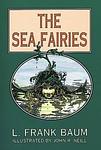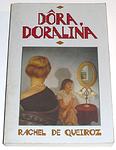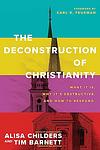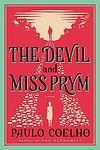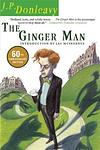The Greatest Brazilian, Irish "Fiction" Books Since 1950
Click to learn how this list is calculated.
This list represents a comprehensive and trusted collection of the greatest books. Developed through a specialized algorithm, it brings together 300 'best of' book lists to form a definitive guide to the world's most acclaimed books. For those interested in how these books are chosen, additional details can be found on the rankings page.
Genres
Countries
Date Range
Reading Statistics
Click the button below to see how many of these books you've read!
Download
If you're interested in downloading this list as a CSV file for use in a spreadsheet application, you can easily do so by clicking the button below. Please note that to ensure a manageable file size and faster download, the CSV will include details for only the first 500 books.
Download-
26. The Sea by John Banville
"The Sea" is a profound exploration of memory, grief, and loss. The novel follows the story of a widower who returns to a seaside town where he spent his childhood summers. His present-day experiences are interwoven with memories of a transformative event from his youth involving a wealthy family he befriended. As he grapples with the loss of his wife to cancer, he also deals with the haunting memories of the past. The narrative is a deep dive into the human psyche, exploring themes of love, loss, and the fluidity of time.
-
27. The Van by Roddy Doyle
The Van is a humorous and touching tale of two friends in Dublin, Ireland, who decide to start a fish and chips van business during the 1990 World Cup. The book explores their trials and tribulations as they navigate the unpredictable world of small business, all against the backdrop of Ireland's football frenzy. Their friendship is tested as they experience the highs and lows of their venture, providing an insightful and entertaining look at the human condition.
-
28. Good Behaviour by Molly Keane
"Good Behaviour" is a darkly humorous and compelling novel that delves into the dysfunctional lives of the St. Charles family. Set in the early 20th century, the story is narrated by Aroon, the youngest daughter, who chronicles her family's eccentricities, secrets, and the complex dynamics that shape their relationships. As Aroon navigates her way through a world of privilege and societal expectations, she grapples with her own desires and the consequences of her actions. With sharp wit and keen observations, the novel explores themes of love, betrayal, and the lengths people will go to maintain appearances.
-
29. The Commitments by Roddy Doyle
"The Commitments" is a humorous and uplifting tale set in the working-class Northside of Dublin, Ireland. The story follows a group of young, passionate individuals who form a soul band, despite their limited musical experience. The band, managed by two ambitious music enthusiasts, navigates the highs and lows of the music industry, dealing with personal conflicts, romantic entanglements, and the challenges of finding their sound. The book offers a raw and honest perspective on music, friendship, and the pursuit of dreams.
-
30. Tent of Miracles by Jorge Amado
"Tent of Miracles" is a satirical novel that explores the themes of racism, colonialism, and the power of knowledge. The story revolves around the life of a poor, mixed-race Bahian scholar who is unrecognized in his own land but becomes a posthumous celebrity when a Nobel laureate praises his work. This sudden fame brings attention to his writings and his message against racial discrimination, and the book also portrays the vibrant culture and diversity of Bahia, Brazil.
-
31. The Bitter Glass by Eilís Dillon
"The Bitter Glass" is a historical novel set in Ireland during the 1920s, a time of political upheaval and civil war. The story follows the life of a young man who becomes embroiled in the conflict, despite his initial reluctance. As he navigates through the complexities of love, loyalty, and patriotism, he is forced to confront the harsh realities of war and the profound impact it has on individuals and communities. The book offers a poignant exploration of human nature, the struggle for freedom, and the cost of political strife.
-
32. Gabriela, Clove and Cinnamon by Jorge Amado
Set in the 1920s in the Brazilian town of Ilhéus, the novel tells the story of a beautiful and charismatic migrant worker, Gabriela, who becomes a cook in the home of a wealthy bar owner. As the town, historically dominated by a few wealthy cacao planters, undergoes economic and social changes, Gabriela and her employer fall in love. Their relationship, however, is challenged by their different social statuses, the town's traditional values, and the employer's political ambitions. The story is a vivid portrayal of Brazilian culture, exploring themes of race, gender, class, and tradition versus progress.
-
33. Brooklyn by Colm Tóibín
The novel tells the story of a young Irish woman, Eilis Lacey, in the 1950s who, unable to find work at home, is sent to Brooklyn by a helpful priest where she builds a new life. She finds work, studies to become a bookkeeper, and falls in love with an Italian plumber named Tony. However, a family tragedy forces her to return to Ireland, where she must choose between her new life in America and her old life at home.
-
34. Room by Emma Donoghue
"Room" by Emma Donoghue is a novel about a young woman named Ma who has been held captive in a small room for seven years with her five-year-old son Jack. The story is told from Jack's point of view as he struggles to understand the world outside of Room and adjust to life after their escape. The novel explores themes of resilience, trauma, and the power of love and imagination.
-
35. The Gathering by Anne Enright
"The Gathering" is a powerful and evocative family saga set in Ireland, exploring the complex dynamics of a large Irish family following the suicide of one of the siblings. The story is narrated by Veronica, the sister of the deceased, who delves into her family's past, uncovering a traumatic event that has shaped their lives. The narrative is a mix of present events, childhood memories, and imagined scenarios, all of which contribute to a profound exploration of memory, truth, and the bonds of family.
-
36. Langrishe, Go Down by Aidan Higgins
"Langrishe, Go Down" by Aidan Higgins is a poignant and introspective novel that delves into the lives of the Langrishe sisters, Imogen and Helen, as they navigate their way through the complexities of love, loss, and longing in rural Ireland. Set in the 1930s, this beautifully written narrative explores the sisters' turbulent relationships with the men in their lives and their struggle to find their own identities amidst societal expectations. With vivid descriptions and emotional depth, the novel captures the essence of a bygone era and offers a profound exploration of the human experience.
-
37. The Book Of Evidence by John Banville
The novel is a dark and introspective tale of guilt and psychological turmoil, narrated by a convicted murderer reflecting on the events leading up to his crime. The protagonist, a dispassionate and unreliable narrator, recounts his life of privilege, his descent into a disaffected existence, and the impulsive theft and subsequent murder that land him in prison. As he attempts to construct a logical narrative of his actions, the reader is drawn into a world where the boundaries between truth and fabrication are blurred, revealing the complex layers of the human psyche and the elusive nature of reality.
-
38. Mary O'grady by Mary Lavin
"Mary O'Grady" is a poignant tale that chronicles the life of an Irish woman named Mary, who, with resilience and strength, navigates the trials and tribulations of her life. As a devoted wife and mother, she faces the challenges of raising a family in mid-20th century Ireland, dealing with the complexities of love, loss, and the relentless passage of time. The novel paints a rich portrait of a character whose ordinary existence is imbued with extraordinary dignity, capturing the essence of human endurance and the spirit of the Irish community. Through Mary's experiences, the story explores the universal themes of family, hardship, and the unyielding hope that propels one forward.
-
39. Dora, Doralina by Rachel de Queiroz
This novel follows the journey of a young woman in early 20th-century Brazil as she breaks free from the constraints of a repressive household and an arranged marriage. Yearning for independence and driven by a rebellious spirit, she embarks on a transformative adventure that takes her from the conservative hinterlands to the more liberal coastal cities. Along the way, she encounters a variety of characters, confronts the challenges of a society in flux, and seeks to define her own identity against the backdrop of a country grappling with modernization and change. Her story is a poignant exploration of self-discovery, feminism, and the quest for personal freedom.
-
40. Netherland by Joseph O'Neill
"Netherland" is a post-9/11 novel set in New York City, which explores the life of a Dutch banker named Hans. After his wife and son move back to London, Hans becomes immersed in the world of cricket, where he befriends a charismatic Trinidadian named Chuck Ramkissoon who dreams of building a cricket stadium in the city. The novel is a meditation on the American Dream, identity, and the immigrant experience, all set against the backdrop of a city and a country grappling with a new reality.
-
41. Os Nacionalismos Africanos by Mario de Andrade
"Os Nacionalismos Africanos" explores the rise of African nationalism during the mid-20th century, delving into the various factors that fueled the movement across the continent. The book examines the impact of colonialism, the emergence of Pan-Africanism, and the struggles for independence experienced by African nations. Through a meticulous analysis of historical events and political ideologies, the author provides a comprehensive understanding of the complex dynamics that shaped African nationalism and its enduring legacy in the post-colonial era.
-
42. A Belfast Woman by Mary Beckett
The book is a poignant collection of short stories that delve into the lives of women from Belfast, Northern Ireland, during the tumultuous times of the Troubles. Through a series of intimate narratives, the author explores the complex emotions, daily struggles, and the resilience of women as they navigate a society riven by political conflict. The stories offer a nuanced portrayal of the female experience, highlighting themes of family, love, loss, and the quest for personal identity against a backdrop of violence and social upheaval.
-
43. Puckoon by Spike Milligan
This comedic novel is set in 1924, revolving around the fictional Irish village of Puckoon. The story unfolds in a chaotic and humorous manner when the Boundary Commission, tasked with dividing Ireland, carelessly draws the new border straight through the village, splitting it between Northern Ireland and the Republic. The absurdity of the situation is amplified by the eccentric characters, including the protagonist Dan Milligan, who find themselves grappling with the ludicrous consequences of this division. The narrative is filled with witty dialogue, slapstick humor, and satirical takes on politics and nationalism, showcasing the author's unique comedic style and critique of bureaucracy and the absurdities of geopolitical divisions.
-
44. Days Without End by Sebastian Barry
"Days Without End" is a historical fiction novel that follows the life of an Irish immigrant who enlists in the U.S. Army in the 1850s. The protagonist's experiences include fighting in the Indian Wars and the Civil War, as well as falling in love with a fellow soldier. The novel explores themes of identity, love, and survival in a brutal and unforgiving era of American history.
-
45. Dona Flor And Her Two Husbands by Harriet de Onís, Jorge Amado
In this vibrant and humorous novel, we follow the life of a young Brazilian widow, Dona Flor, who is renowned for her irresistible culinary talents and her dedication to her students at the cooking school she runs. After the untimely death of her wild, irresponsible, but passionately loved first husband, she eventually remarries a man who is the polar opposite: kind, considerate, and utterly devoted, yet lacking the fiery passion of her first spouse. Her life takes an unexpected turn when her first husband's ghost returns, leading to a peculiar and comedic arrangement where she finds herself juggling the affections and demands of both her deceased and living husbands, challenging her notions of love, marriage, and fidelity in a tale that celebrates the complexity of human relationships and the cultural tapestry of Brazilian society.
-
46. The House Of Splendid Isolation by Edna O'Brien
The book tells the story of an old woman living in isolation in a grand but dilapidated house in rural Ireland. Her quiet life is disrupted when a fugitive on the run from the law invades her home. As she's forced to coexist with him, she begins to reflect on her own past and the history of the Irish people, leading to a complex exploration of themes such as loneliness, regret, and the struggle for national identity.
-
47. The Boy in the Striped Pyjamas by John Boyne
This novel follows the story of a young boy who moves from Berlin to a house near a concentration camp during World War II. Unaware of the grim reality of his surroundings, he befriends another boy on the other side of the camp fence. The two develop a deep friendship despite the horrific circumstances, leading to a devastating and unforgettable ending.
-
48. How It Is by Samuel Beckett
The book is a challenging and experimental novel that delves into the fragmented and often bleak inner monologue of its protagonist, who finds himself lying in the mud, in a dark and indeterminate space. The narrative is characterized by its repetitive and disjointed style, reflecting the protagonist's sense of dislocation and his struggle to make sense of his existence. Through sparse and poetic language, the novel explores themes of solitude, identity, and the human condition, as the protagonist interacts with other vague figures in this desolate landscape, questioning the nature of reality and his own consciousness.
-
49. The Devil and Miss Prym by Paulo Coelho
A stranger arrives in the small town of Viscos, carrying with him a choice that could bless or curse the entire community. The town's inhabitants are forced to confront their deepest fears and question their moral compasses as they wrestle with the stranger's proposition: he will give them a fortune in gold if they kill one of their own. The stranger's presence stirs up chaos and brings to light the darkness within the human soul, challenging the townsfolk to make a decision that will determine their future.
-
50. The Ginger Man by J. P. Donleavy
"The Ginger Man" is a novel that follows the exploits of Sebastian Dangerfield, a young American studying law in post-World War II Dublin. Dangerfield is a heavy-drinking, womanizing, and irresponsible character who constantly finds himself in trouble due to his reckless behavior. Despite his flaws, he is a charismatic and compelling character who navigates life with a unique blend of humor and cynicism. The book provides a vivid depiction of bohemian life in mid-20th century Dublin, with its struggles and joys.
Reading Statistics
Click the button below to see how many of these books you've read!
Download
If you're interested in downloading this list as a CSV file for use in a spreadsheet application, you can easily do so by clicking the button below. Please note that to ensure a manageable file size and faster download, the CSV will include details for only the first 500 books.
Download